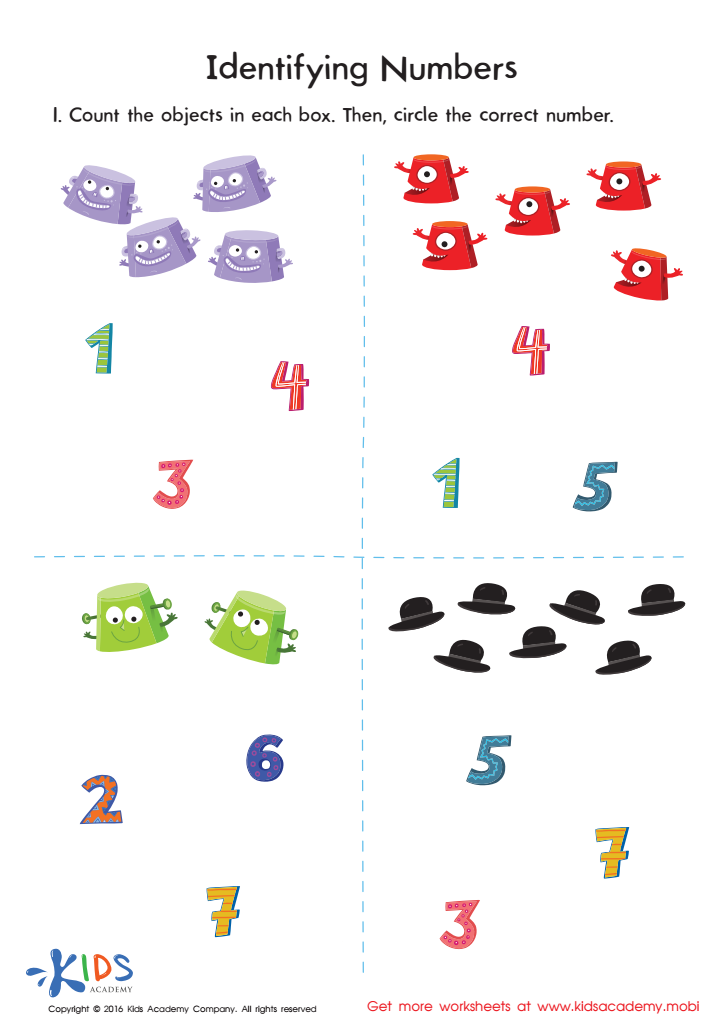Counting skills Matching Worksheets for Ages 7-9
6 filtered results
-
From - To
Enhance your child's counting skills with our engaging Counting Skills Matching Worksheets for ages 7-9! Designed to make learning fun, these worksheets help young learners practice number recognition, count objects, and match quantities with corresponding numerals. With colorful illustrations and interactive activities, students will enjoy developing their mathematical abilities in a playful manner. Our worksheets cater to different learning styles, ensuring a well-rounded approach to counting fundamentals. Ideal for classroom use or at-home learning, these resources are perfect for building confidence and skills in math. Download now to support your child's educational journey and ignite a passion for learning!
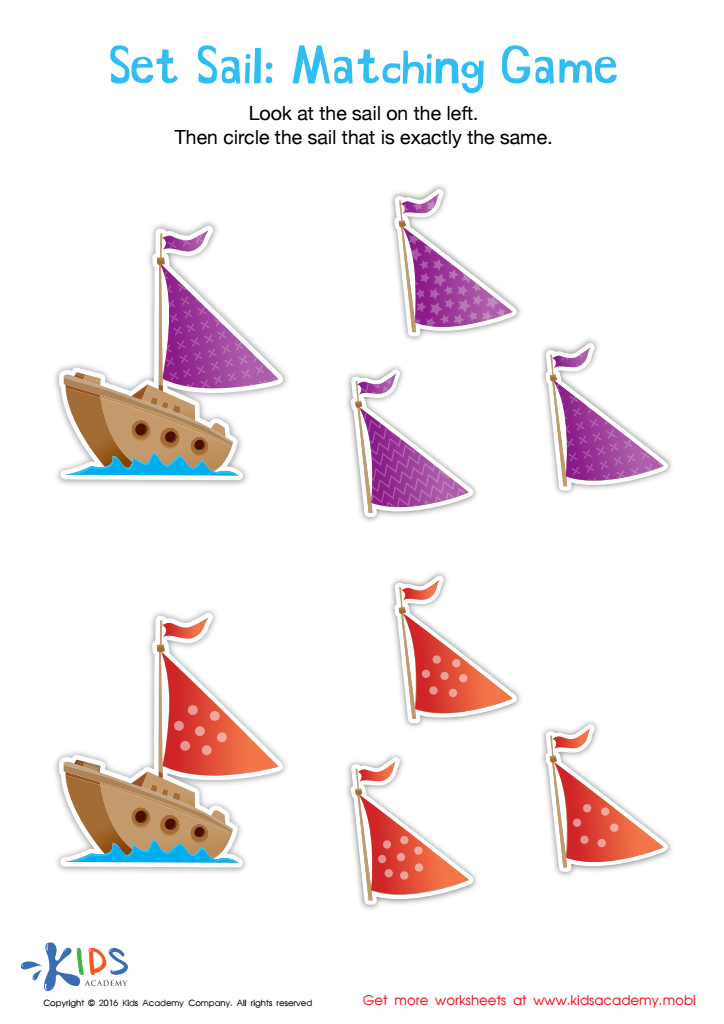

Set Sail Worksheet
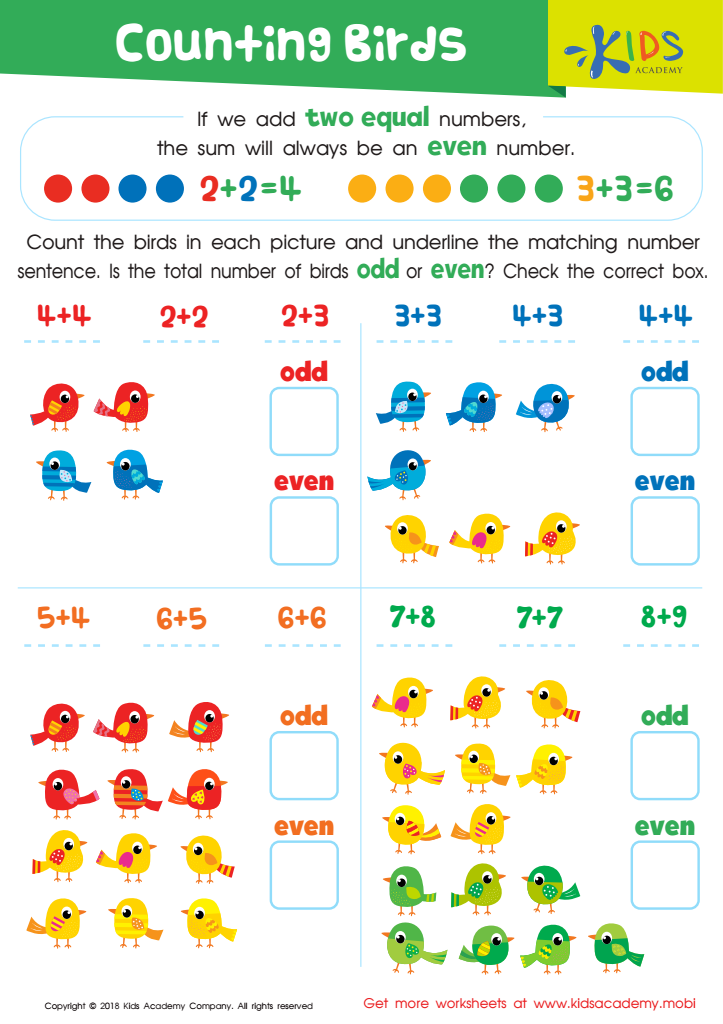

Counting Birds Worksheet
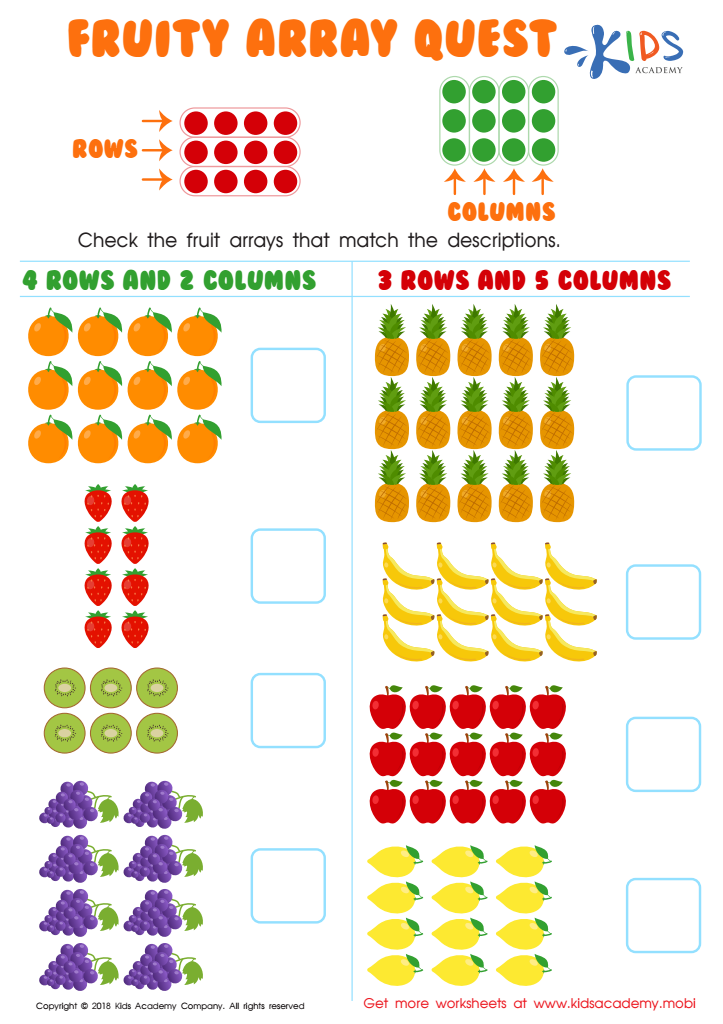

Fruity Array Quest Worksheet


Colorful Arrays Bingo Worksheet
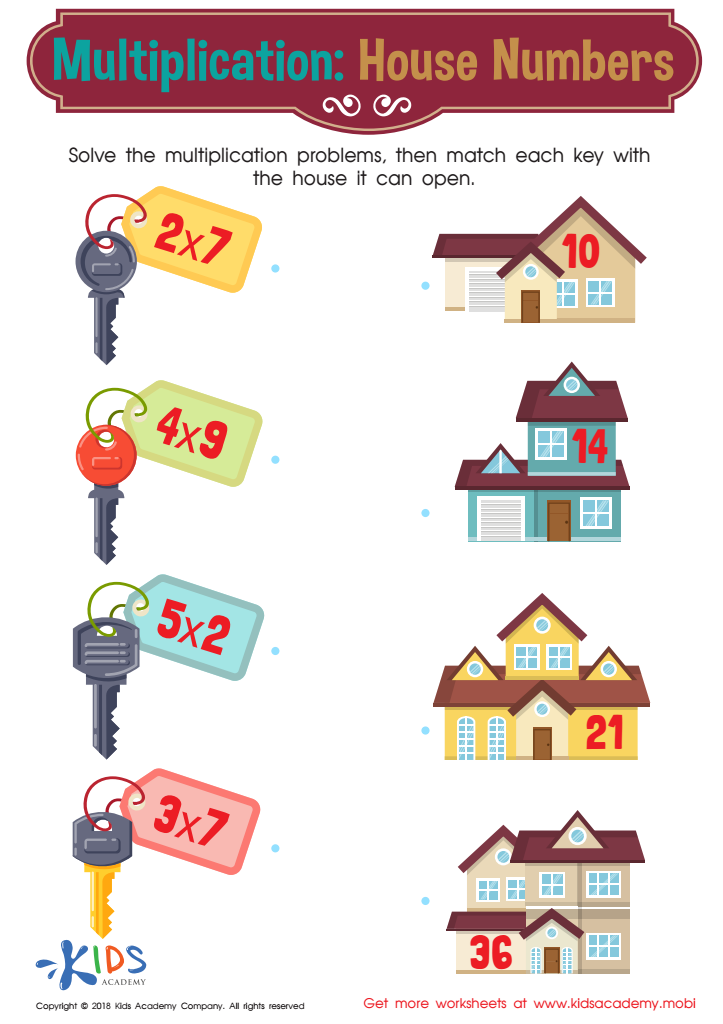

House Numbers Worksheet
Counting skills are fundamental not just for math but for overall cognitive development in children aged 7 to 9. During this developmental stage, children transition from basic counting to more complex numerical concepts, which are essential for their future academic success. Teachers and parents should prioritize counting skills through matching activities because these exercises reinforce number recognition and promote number sense, laying the groundwork for addition, subtraction, and problem-solving skills.
Matching activities facilitate engagement by introducing joy in learning; children love games and hands-on practices. This interaction fosters spatial reasoning and encourages children to explore quantities, boosting both confidence and motivation in mathematics. Counting also aligns with real-life scenarios, as it helps children understand concepts of comparison, sequencing, and classification.
Moreover, children with strong counting skills often show improved focus and memory, further enhancing their learning capabilities. By supporting these skills early, parents and teachers not only build foundational math knowledge but also nurture critical thinking and analytical abilities.
In summary, counting skills through matching activities help children become proficient in mathematics while developing essential lifelong learning skills. Investing time in these early experiences equips children for academic challenges ahead and cultivates a positive attitude toward learning.
 Assign to My Students
Assign to My Students

